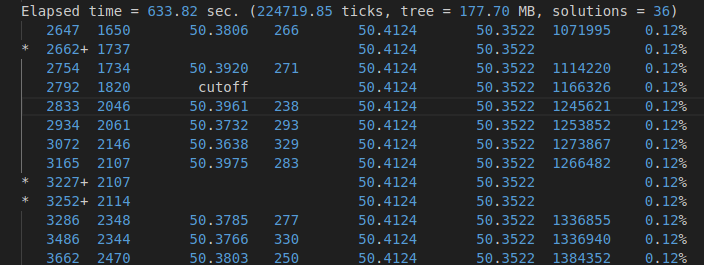Im solving n-dimensional Knapsack problem as LP problem.
I noticed that sometimes dual LP problem may be solved much faster than primal.
My test problem contains 500k variables and 50k constraints, integers only.
When I force 'presolve dual setting' I see much better results in some cases comparing to 'presolve dual setting' set to auto, but sometimes primal is faster. https://www.ibm.com/docs/en/cofz/12.10.0?topic=parameters-presolve-dual-setting
Is there any way to understand that primal problem will take a lot of time and try dual instead?
btw. When problem is slow I see a lot of iterations like, maybe a lot of iterations with same gap may be an indicator
